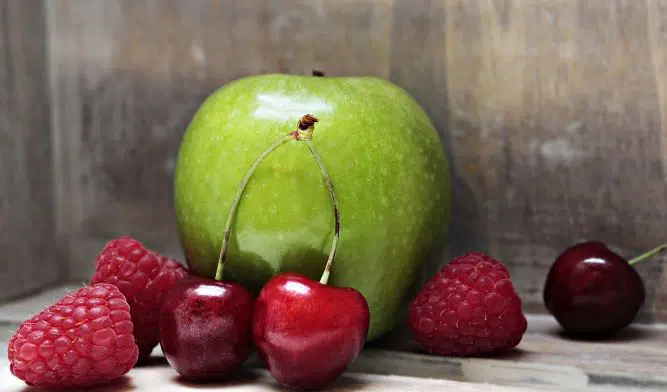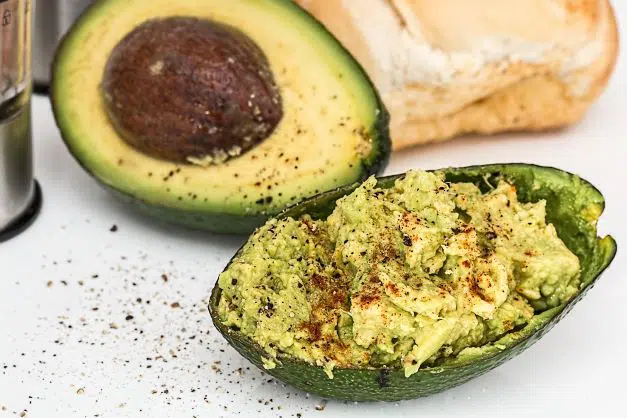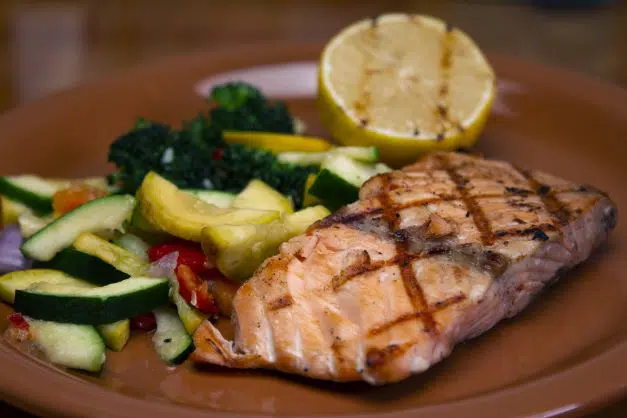If you are planning to run a marathon or just love running in general, you may need to make some dietary changes in your lifestyle. Yes, training harder may increase your stamina and speed, but your nutrition is just as important, if not more, to make sure that you are getting the best out of your run. To enjoy a good, healthy and long run it is important to maintain a fine balance of macronutrients, vitamins and essential minerals. Moreover, eating the right things at the right time can make all the difference in performance and preventing injuries. Optimum nutrition for runners can make all the difference.
Long-distance runners should aim to keep themselves hydrated, wait at least 2 hours after a heavy meal to run, eat a small carbohydrate-rich easy-to-digest snack before running, and have a meal rich in healthy fats and proteins after the run.
Importance of nutrition for runners:
If you were planning to take your car on a long trip, you would check that it has sufficient fuel beforehand, right? Just like that, your body needs fuel to run and this fuel comes from your diet, specifically carbohydrates. The right nutrition can make or break your running game and boost your performance and speed.
Not getting enough nutrients from your diet will cause lethargy and fatigue during the rest of the day, and instead of feeling fresh and energized, you will feel weak and exhausted. So, if you are someone who runs a lot, you might need more calories than usual to keep yourself from feeling drained. Adequate water is also extremely important but not our focus here.
Optimum nutrition for runners:
Getting the right amounts of carbohydrates, proteins, and fats (AKA macronutrients) in your diet is crucial for runners. To skip this hassle, professional runners have their diet tracked by personal dieticians. But if you cannot afford this, you do not need to fret.

Carbohydrates – Optimum Fuel for Runners:
Lately, many people are obsessed with cutting out carbs from their diet without realizing that our body needs them for energy when training. Your carbohydrate intake should reflect your training load.
A runner and other endurance athletes should consume 7-10 grams per kilogram of body weight per day (g/kg BW/day) of carbohydrates. This is because the body utilizes stored glycogen and blood glucose for energy, both of which arise from dietary carbohydrates. To calculate your daily carbs on the lower end of this range, multiply your body weight in pounds by 7 and divide by 2.2.

Fats:
Fats are the reserved fuel that your body utilizes when it is low on glycogen and blood glucose. The type of fats you consume matters a lot, so focus on monounsaturated and polyunsaturated fats. Athletes should plan on consuming 0.8-1.3 g/kg BW/day of dietary fats. Fats keep you fuller for longer so healthy fats like avocado, olive oil, and nuts, should be included in the main meals of the day in sufficient amounts.

Protein:
Our body breaks down muscle while doing high-intensity running and proteins are essential for rebuilding these muscles back again. Even though runners prefer to stay lean and keep a low body mass index to stay fast, their muscles need to rebuild and recover after a running session. It is generally recommended that athletes should consume 1.2-1.7 g/kg BW/day of protein.
Why are carbs important for runners?
As proteins are very important for bodybuilders, carbohydrates hold the same importance for long-distance runners. Recently the concept of “training low” has sparked the interest of many athletes and trainers. Let’s reassure you that a carbohydrate-rich diet is the best diet for long-distance runners. Why are carbs part of optimum nutrition for runners?
Carbohydrates are starches and sugar that are utilized by the body to produce energy. They are very important to sustain the levels of energy in the body to not only run properly but also go long distances.
As we run, the body uses fats and carbs as fuel for energy. The more intense your workout or run is the more you will burn carbohydrates as well as fats. When you are running long distances your body requires large carbohydrate stores but if they are depleted you will not be able to go far. This is called bonking, crashing or hitting the wall.
Therefore, a long-distance runner must eat a carbohydrate-rich diet. By carbohydrate diet, we mean complex carbohydrates such as fruits, vegetables, whole grains, rice and pasta. They are called good carbs because they are not only low in calories and fat but have a high amount of fiber that provides energy for a long time.

What vitamins are important for runners?
Unlike macronutrients, vitamins are required in small quantities, but they are still essential to keep endurance athletes fit and strong. Micronutrients are very important as they are involved in the production of hormones, proteins and enzymes that are required by our body to perform optimally. As compared to a normal person, runners need more micronutrients, especially certain vitamins that are very important for fitness and exercise performance.
Vitamin C is packed with benefits for long runners. Its strong antioxidant properties can be very helpful in protecting from free radicals produced by our body during running. It is the building block of collagen that helps in building cartilage blood vessels, muscle and bone. It also increases the absorption of iron from non-meat sources that may otherwise lead to anemia. Orange, kiwi, strawberries, kale, pineapple are great sources of Vitamin C.
As runners depend upon the strength of the bone to run longer distances, they need to maintain strong bones. Vitamin D protects the body from stress fractures and inflammation due to overtraining. It is very important for calcium homeostasis as it helps uptake of calcium from our diet and also controls how calcium is used in bone development and growth. Studies also show that D deficiency not only softens the bones but also leads to poor muscle function. Diet cannot offer you enough Vitamin D, but it is easy to supplement. Our body can produce Vitamin D when it is exposed to the sunlight, so spend some time in the sunshine and then put on the sunblock.
Hemoglobin is in the red blood cells is needed to transport oxygen around the body to produce energy. Moreover, the waste product i.e., carbon dioxide is also transported out my hemoglobin. Vitamin B6 helps to produce this hemoglobin. It is also involved in the breakdown of protein to amino acids. Sometimes when glycogen stores get empty, cells and muscles use amino acids for energy. You can consume Vitamin B6 by including bananas, chickpeas, and fish in your diet. Iron is also important in this process.
What to eat and when:
As mentioned before, it is not about meeting the daily requirements but eating the right things at the right time. What you eat should vary based on the timing, duration, and goal of your running regimen.
Pre-Run Nutrition:
Eating a heavy meal before running may cause gastrointestinal discomfort, so make sure to plan your meal at least 2 hours before running. Complex carbohydrates like oats, pasta, etc. will keep you fuller for longer and slowly release energy for longer periods. If you are aiming to run for more than an hour, stick to a snack rich in simple carbohydrates and low in protein and fats. For runners, obtaining optimum nutrition before is easy, but you have to plan for it.
- Bananas are perfect because they contain easily digestible carbohydrates as well as minerals like potassium which compensate for sweat loss.
Nutrition During the Run
If you are planning to run for under 60 minutes, water is the only thing that you need to take along with you. However, for long-distance runners, the body’s energy reserve gets depleted which might make them lethargic and prone to muscle damage.
In this case, the body needs a boost of energy in the form of sugar and simple carbohydrates to refuel. A good option would be to take a sports drink or gel with you. Make sure that you experiment with the exact brand and type of gel or drink before a competition so you get no surprises. This is an easy one to get right to get optimum nutrition as a runner.
Post-Run Nutrition:
After you are done with your run, it is crucial to replenish lost fluids, restore the glycogen levels and rebuild and strengthen muscle fibers. You can restore carbohydrates by taking in 1.2 g per kilogram of body weight per hour over several hours. It is also important to consume quality proteins with those carbs in order to reduce muscle breakdown and to improve exercise recovery.
Lean proteins like chicken or turkey with a side of whole-grain bread or pasta is a good option. Sweet potatoes are a perfect side dish because of their high potassium and vitamin K content.
Conclusion:
Achieving optimum nutrition for runners is as important as your training when you are opting for long-distance runs. While carbohydrates are essential for providing energy, fats and protein should be eaten in sufficient amounts throughout the day to keep your body from running low on nutrients. It is also very important to pay attention to what you eat before and after your run.
